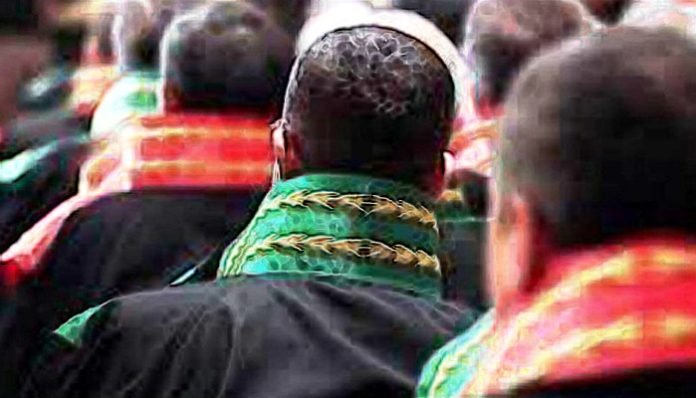Özgür Taşçı, a law school graduate, has been eliminated in the interview stage for the position of judge despite ranking second nationally in last year’s judge candidacy exam, sparking nationwide controversy about Turkey’s interview system for judicial positions and civil service jobs.
Taşçı, who graduated top of his class in the teaching of mathematics from Uludağ University and earned a law degree from Istanbul University, was also ranked third in this year’s assistant judge exam.
Expressing his frustration over the interview process, Taşçı tweeted: “I see that those who once claimed to be victims are now creating new victims themselves. I was eliminated in just 1.5 minutes.”
Favoritism in the appointment of public officials in Turkey has long been a contentious issue, sparking widespread criticism and debate. Allegations frequently surface about the prevalence of nepotism and patronage within the hiring process for various public sector positions, including those in the judiciary, education and civil service.
Critics argue that these practices undermine meritocracy, leading to the selection of candidates based on personal connections or political affiliations rather than qualifications and competence. This pervasive issue has eroded public trust in government institutions and prompted calls for reform.
“When my students ask, ‘Are you considering becoming a judge?’ I cannot bear to tell them about the reality of interviews, so I remain silent to avoid extinguishing the light in their eyes,” Taşçı said.
During last year’s general election, Turkish President Recep Tayyip Erdoğan promised to abolish the interview system for public personnel recruitment. However, more than a year has passed without any action from the government regarding this promise.
Following an abortive putsch in 2016, the Turkish government declared a state of emergency and carried out a massive purge of state institutions under the pretext of an anti-coup fight. Over 4,156 judges and prosecutors were summarily removed from their jobs for alleged membership in or relationships with “terrorist organizations” by emergency decree-laws subject to neither judicial nor parliamentary scrutiny.
The purge has hollowed out Turkey’s justice system even as the caseload has exploded. The expulsions have resulted in a shortage of experienced judges and prosecutors.















